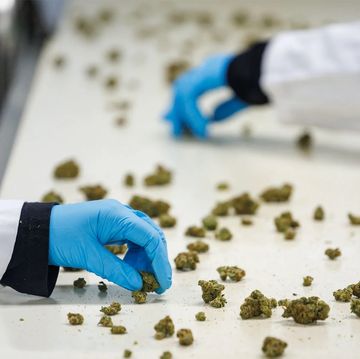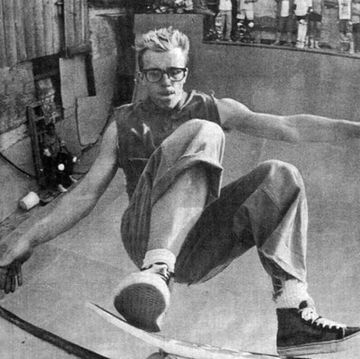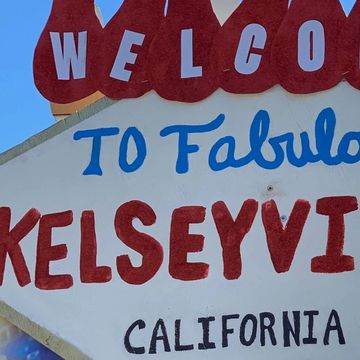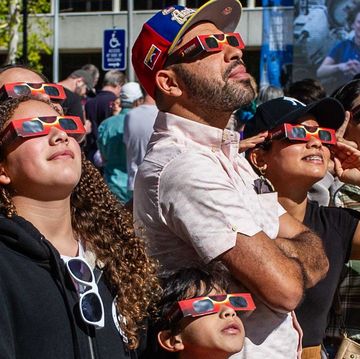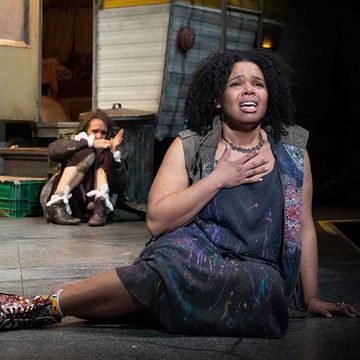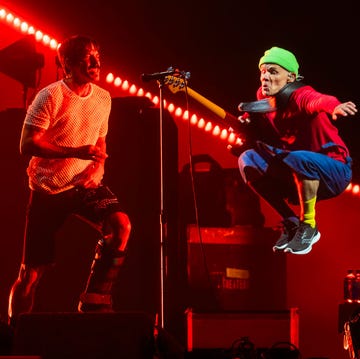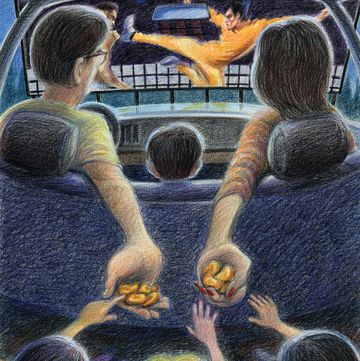Most longtime Californians know what an earthquake feels like. It’s an ominous rumble that prompts us to shoot out of bed or dive under a table — oops, into a doorway. We’ll wonder, “Is this the Big One?” And when it’s not — there hasn’t been a major earthquake in the state in a quarter century — we relax, go back to what we were doing and text and tweet “Earthquake!”
But the Big One is most definitely coming. When it does, most of us hope to be prepared, either with emergency kits we’ve purchased in advance or with ones we’ve put together ourselves. Preparedness and emergency response trainers Jim and Janelle Fazackerley suggest that not only do we all need customized emergency kits for our homes, offices and cars, we need to regularly “engage” with them to ensure that, when the time comes, we’re well-stocked and up-to-date.
“If you visualize how it’s gonna be,” Janelle Fazackerley says of a catastrophic earthquake, “it’s not that hard to make a kit.”
Part of that visualization means planning for the unpredictable nature of a natural disaster. An earthquake could occur in a thunderstorm or a heatwave, in the middle of the day or deep into the night. You could be at home or stuck in traffic. There might be mayhem in the streets. Emergency crews and law enforcement will be tied up, unable to rescue you and your neighbors. So you’ve got to be prepared.
Alta asked the Fazackerleys to examine and analyze five currently available commercial emergency kits. Key elements of the kits they reviewed generally included backpacks, first-aid kits, blankets, ponchos, air-filter masks, food, water and tools. The better kits had tough suede or leather gloves — important for clearing debris and glass.
Listen to our Alta Podcast with Janelle Fazackerley on what to include in your home and car earthquake emergency kit.
While all of these kits have their pluses and minuses, the Fazackerleys noted that none of them came with all of the items that experts recommend for preparedness, including a gallon of water per person per day (plus enough for pets), large gauze bandages and wraps for major cuts, a tourniquet, leather or suede gloves, multiple N-95 breathing masks, eating utensils, high-quality ponchos, multiple flashlights, a small fire extinguisher, a shut-off wrench for gas and water — and a hefty, nondescript backpack. A lightweight tent, change of clothes and comfortable shoes for each person also are considered essential.
In addition, the Fazackerleys recommend packing vital comforts such as reading glasses, feminine products and medications for family members and pets, as well as financial records and even some emergency cash.
By realistically preparing for multiple scenarios, we all can be prepared to survive when the Big One starts rumbling.
RATING THE EARTHQUAKE KITS
Here’s what the Fazackerleys thought about the earthquake kits they evaluated for Alta.
3-DAY, 1-PERSON ELITE SURVIVAL
- Price: $139.95
- Seller: Stealth Angel Outdoor and Urban Survival, stealthangelsurvival.com
- Pros: The camouflage-patterned backpack is packed with some serious survival gear — including Fazackerley-recommended N-95 air-filter masks, suede work gloves, water, protein bars, ponchos, blankets, hand warmers and sanitary napkins, which can double as gauze.
- Cons: The first-aid kit is underwhelming. The camo-pattern bag might serve as a target for other, less-prepared survivors. Who wants to survive an earthquake only to get mugged for emergency supplies?
- Grade: A-
COMPLETE EMERGENCY BAG FOR 2 PEOPLE
- Price: $135.99
- Seller: The Earthquake Bag, earthquakebag.com
- Pros: The sturdy backpack is well-stocked with suede work gloves, a flashlight, siren, compass, emergency whistle, rope, hand warmers, multi-function knife, a compact hygiene kit and highly rated N-95 air-filter masks.
- Cons: The bright red backpack might call unwanted attention to the owner. The limited first-aid kit can only handle small cuts. The pressure from the heavy bag’s contents caused one of its water packets to break, getting the whole backpack wet.
- Grade: B+
PREPSTER BACKPACK 3-DAY EMERGENCY BA
- Price: $395.00 (+ $75 for optional monogram)
- Seller: Preppi, preppi.com
- Pros: The Prepster comes with two bright headlamps, particularly useful should an earthquake occur at night. A USB charger for iPhones and Androids is a smart tool, as is the combination radio/flashlight.
- Cons: The bag’s thin leather straps could make it uncomfortable to carry. The kit’s gloves are canvas — not leather or suede. The designer five-piece toiletry kit (grapefruit face cleanser!) seems a bit over the top.
- Grade: B
3-DAY EMERGENCY GO BOX
- Price: $95
- Seller: Preppi, preppi.com
- Pros: Preppi’s bargain product is a small cardboard box that would serve well as a kit to keep in the car. A notebook, deck of cards, Swiss Army knife and storm-proof matches are welcome inclusions, and the box’s food and water supplies are well-stocked. All of the items inside the box are clearly and brightly labeled.
- Cons: The first-aid kit can’t handle bigger injuries and the top-held lantern doesn’t shine light in one direction like a flashlight. Unlike a bag, the box would be difficult to carry.
- Grade: C+
3-DAY, 1-PERSON DELUXE EMERGENCY PREPAREDNESS KIT
- Price: $99
- Seller: American Red Cross, redcross.org/store
- Pros: The compact personal hygiene kit is well done, and the large bag’s unused space would come in handy for adding personal items. A crank radio, large roll of duct tape, emergency blanket, flashlight, hand sanitizer and hygiene kit all will come in handy.
- Cons: The bright red backpack “will be stolen,” warns Janelle Fazackerley. The kit doesn’t come with nearly enough water packets, and the single air-filter mask was described by the Fazackerleys as a “joke.”
- Grade: C-
Beth Spotswood is Alta's digital editor, events manager, and a contributing writer. In addition to her work for Alta, Beth writes for the San Francisco Chronicle.






